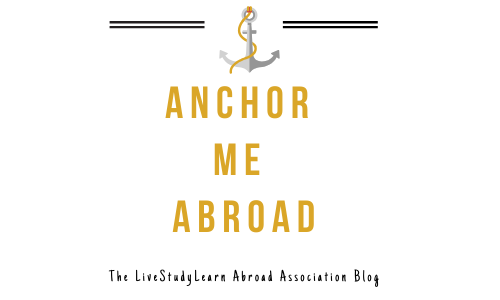
Study Abroad Cultural Fit: What You Need to Know
The value of a good cultural fit is a topic that many students overlook as they begin researching how to study abroad. While you’ll never be able to fully determine if you are a “fit” completely until you arrive, there are basics to consider.
It is important to keep in mind that your study abroad cultural fit is both a macro and micro cultural concern.
For example, macro cultural fit focuses on whether or not you believe in the ideals of a country/nation, respect the traditions, have an unspoken willingness to abide by the laws of the nation you’re studying in, etc.
On the other hand, the micro cultural fit could relate to your ability to feel included in your group within a program seminar, feeling part of a team in your study abroad internship, or feeling that you as an individual belong in the country based on a variety of factors including religion, race, sexual preference, or economic status.
Both matter and should be considered for a student as you decide where you want to study abroad and assessing potential cultural fit should play a role in your final decision.
Why Cultural Fit Matters for Study Abroad
Cultural fit on a macro and micro level impacts all aspects of a study abroad experience. While many students may not consider it beforehand, it is often a top contributor for the reasons why some students regret studying abroad. The reason for this is that cultural fit is often an extension of our core beliefs, personality, and what matters most to us.
While it is possible to thrive in a place where you are not a cultural fit, it becomes more of a struggle to ever feel fulfilled completely with the experience if you feel unseen or unheard.
Lack of cultural fit in a study abroad or semester away experience creates isolation, the increase of compare and contrast, and anxiety for students that feel they do not belong. Worst of all, it diminishes all of your efforts that were put forward to gain you access to your program.
The Determining Factors of Study Abroad Cultural Fit
Discussions of cultural fit are most prevalent when thinking of careers. Employers will often assess and sometimes have job interview candidates explain more about their cultural fit with the company/organization.
For study abroad, it is much more nuanced, however, a bit similar to how you may have chosen a college or university. Here are some of the main determining factors for assessing study abroad cultural fit:
Personality – What are your core personality traits? How do you best interact with people? Are you a group person or a solo-driven person?
Learning style – Each study abroad program has a different teaching method and style. Depending on this style, it could be a disastrous fit if it clashes with the way you learn best.
Core World View- Your beliefs (political, moral, ethics, etc) matter when studying abroad because a location that is not representative of this may prohibit your success.
For example, if you are against organized religion and socially progressive, what is the likelihood of feeling welcomed and embraced if you study abroad in the United Arab Emirates (UAE), where 96 percent of the population has a confirmed religion and is very socially conservative?
What Happens If I Get There and It is a ‘Bad Fit’
This is the part that is a slight oxymoron: You’re encouraged to pick a program in a location that will be a good cultural fit, but on the other side of the same note, you will not know your capability to fit in until you arrive and get settled.
A bad cultural fit can ruin a study abroad experience, however, it does not have to end your experience. I prefer to discourage students from packing up and going home (unless it is for your safety for some reason) and turning study abroad lemons into lemonade.
In previous content, I discussed how my time in Florence did not necessarily feel like the “right” cultural fit (with the caveat that I had preferred my experience in London which had just happened one semester earlier!) but I decided to stay to make the best out of what I had been given.
For students who find themselves in a ‘bad cultural fit’ situation, but who are not interested in giving up, I would recommend the following:
Understanding WHY You Think You are a Bad Cultural Fit – In the first few weeks, it’s more difficult to tell specifically because of the chaos that comes along with just starting a study abroad program. Is it anxiety? Is it just homesickness?
While I would never question someone’s ability to understand how THEY feel, I just want you to keep in mind that there may be multi-layers to this feeling in the beginning.
Imagine Your Last Day – This is a practice that I put into play while living in Florence. By ‘Imagining your Last Day’ you are essentially thinking forward to your last day of your study abroad program. What do you hope to have accomplished? What do you want to say that you saw or did? Though it was not a great cultural fit, is there a story in there about perseverance and overcoming adversity that you may eventually be able to spin into a positive example for a job interview one day?
Find Your Passions and Do Them Often – I have been there (sometimes still feel there!), where you live in a place where you simply “can’t find your people”. It happens but that is only half the story.
No matter where you live in the world, there are people nearby who are just like you, even if not always in plain sight. Go find them.
Seek out meetups (or a Non US-based equivalent) for your hobbies, join a local group that aligns with your favorite hobbies. Or Volunteer. Volunteering is a wonderful way to give back of course, but also meet locals and learn more about the culture from a different perspective.
Despite the worries about cultural fit, I think choosing the right program is vital and can solve many of the problems mentioned above. To find your PERFECT study abroad program, click here to download my FREE 24-page e-Guide.
Are you stressed about cultural fit in your upcoming study abroad program? Are you already studying abroad but feel like it’s not the right fit? Share your experience below with a COMMENT!
Until next time,
-K

Known as The Study Abroad Specialist, Kimber Grayson is a serial-study abroader turned International Education coach and expert. Since 2014, she has helped 100+ students navigate their semester away journey from the coastal areas of Spain to China and every place in between. In 2018, she launched The LiveStudyLearn™ Abroad Association, a one-of-a-kind online membership platform for study abroad students worldwide.
She holds two Master's degrees from two well-respected London-based universities and has experience working in the US, UK & and Italy.
In her spare time (what's that again?), she enjoys leisure travel city breaks, any snow-based activity, skeet shooting, and attempting to learn new languages.
- kimberhttps://www.anchormeabroad.com/author/kimber/
- kimberhttps://www.anchormeabroad.com/author/kimber/
- kimberhttps://www.anchormeabroad.com/author/kimber/
- kimberhttps://www.anchormeabroad.com/author/kimber/
kimber
Known as The Study Abroad Specialist, Kimber Grayson is a serial-study abroader turned International Education coach and expert. Since 2014, she has helped 100+ students navigate their semester away journey from the coastal areas of Spain to China and every place in between. In 2018, she launched The LiveStudyLearn™ Abroad Association, a one-of-a-kind online membership platform for study abroad students worldwide. She holds two Master's degrees from two well-respected London-based universities and has experience working in the US, UK & and Italy. In her spare time (what's that again?), she enjoys leisure travel city breaks, any snow-based activity, skeet shooting, and attempting to learn new languages.


You May Also Like

Study Abroad in a Post-COVID World: What Will It Look Like?
August 22, 2021
(VIDEO) How To Fill Out Your 2023 ISFAA Form
February 7, 2023






